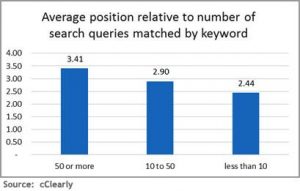— January 21, 2019
“The illiterate of the 21st century will not be those who cannot read and write, but those who cannot learn, unlearn and relearn.”
-Alvin Toffler
Part 1: Essential Beliefs
It is essential that you create a culture that promotes and encourages learning in your team and your organization, at both individual and collective levels. To do this effectively, you need to have the right beliefs to begin with, ensure your behaviors are aligned with these beliefs, and take specific actions that demonstrably promote learning and growth in your team and/or the wider organization.
This process or journey begins with you having the right beliefs about learning, knowledge and growth. In this part 1 of our current blog series, I will talk about these beliefs that I see as essential pre-requisites for you to create a culture of learning in your team and your organization. Part 2 next week will cover the specific behaviors and things that you can do.
So what are these core beliefs or mindsets? I believe that there are basically only two source beliefs that lead to the right behaviors and actions:
1. The Growth Mindset
“The belief that cherished qualities can be developed creates a passion for learning.”
– Dr. Carol Dweck, Mindset
In order for you to fully champion the learning and growth of those under your leadership, you need to believe that all their traits can grow: intelligence, abilities, skills, knowledge, character, behaviors or any other “cherished quality”. If you believe that, through their effort and learning from failure, mentoring or other initiatives (yours and) others’), others can develop their traits, you have what Dr. Carol Dweck calls a “Growth Mindset”. However if you believe the opposite, that people’s abilities and traits are largely fixed and there’s not much that can be done to change them, then you have what Dr. Dweck calls a “Fixed Mindset”.
Dr. Dweck’s fantastic book, “Mindset: The New Psychology of Success” is a great read and contains a lot more about her research on growth and fixed mindsets, and their massive impact on life outcomes and leadership effectiveness in general, and learning in particular. If you want a quicker read on Dr. Dweck and her amazing work, here is a list of shorter articles that capture her work and its great impact:
1. The Effort Effect, Stanford (University) Magazine
2. How Companies Can Profit from a “Growth Mindset”- Harvard Business Review
3. Do You Have a Growth Mindset? – Harvard Business Review
When you sincerely believe in people’s ability to learn and grow, you will naturally encourage it more passionately, consistently and effectively in your behaviors and actions as a leader. Also, when you have a growth mindset, your beliefs about failure naturally change and evolve: you see failure as a lesson to try again and not as a judgment of someone’s ability. You believe people fail, not that they are failures, especially if they learn from their mistakes and don’t give up.
“Failure is simply the opportunity to begin again, this time more intelligently.”
– Henry Ford
So how do you develop a “Growth Mindset” as a leader?
Having a perfect growth mindset entails you believe all the time that everyone can change anything about themselves that they put their effort and will to. In my experience and honest self-assessment, I believe it is very difficult to have this “pure” growth mindset, all the time about everyone and all their traits. There will be things that we all believe can’t change about certain people. Also, the real world places constraints on our resources, time and effort, that may not allow us to give unlimited chances to fail, especially to someone who refuses to learn from failure or put in the required passion, effort and toil needed to grow in necessary areas of their work effectiveness.
However, what we can effectively strive for is to have as much of a growth mindset as possible about people and their traits. This starts with having a growth mindset about your own self, as a person, professional and leader, and all your traits. Tell yourself you have the ability to learn and grow in any area of your life that you really want to and put your sincere effort into. Then follow this up with action and consistent effort. Learn from failure and don’t give up. See learning as an iterative process of growth through success and failure. When you eventually see growth in yourself, it will naturally spark a belief that others can do the same.
Share this belief and your story of personal growth with your team. Tell them you believe in their ability to learn and grow in anything they put their effort into. Then back this up with consistent behaviors and actions that are aligned with this belief. We will be talking more about those in next week’s blog post.
2. Intellectual Humility
“The greatest enemy of knowledge is not ignorance, it is the illusion of knowledge.”
– Stephen Hawking
The second important pre-requisite belief is intellectual humility: having an awareness of the limits of one’s knowledge. You need to believe that learning necessarily has to be a constant and lifelong pursuit. It cannot and must not end for any person at any point in their lives. Again, this starts with what you believe about knowledge in general and your own learning in particular.
So why does learning have to be a constant and lifelong pursuit? One, because change is constant. And second, because collective human knowledge, overall (and even about sub-areas of larger disciplines), is infinite in comparison to the very finite existence of ALL individual human beings, Einstein or me included. Knowledge, skills and mindsets are all constantly evolving and adapting entities, and they should be given the VUCA-ness of change in our world today. That means that, no matter how much I know about anything, there will always be a lot more that I don’t know and can learn. This is true, but especially hard to accept when we consider ourselves highly experienced experts at anything. This intellectual humility is at the root of being a lifelong learner and enjoying that learning, through whatever means possible: formal training or personal and work experiences.
I have gleefully accepted the fact that, no matter how much I know about leadership or HR, there will always be a lot more to learn about. Quite apart from being unpleasant, this belief is actually very liberating and thrilling for me. There is always something to read or watch. And most importantly, I believe there is always something to learn from any person I interact with. This makes work and life a lot more fascinating.
When you sincerely believe in being intellectually humble and a lifelong learner, you will naturally act in ways that consistently encourage learning constantly in your team. You will also learn and adapt more effectively yourself.
So, how was I “intellectually humbled”?
During my early university years, I first experienced a truly large library, the kind that has millions of books and thousands of shelves. The library itself might not be something truly spectacular (since there are many like it all over the world), but what occurred to me in those first few moments has been spectacular for me. I thought: How long would it take me to just read through all these books? A few lifetimes at least, without stopping. And how long to master that knowledge? Many more lifetimes at least, again without stopping. And how many such libraries do we have around the world? Hundreds if not thousands. In that moment, I was intellectually humbled for life. Better start learning, since there’s a lot more to learn that I have time for in many lifetimes.
Business & Finance Articles on Business 2 Community
(82)
Report Post






